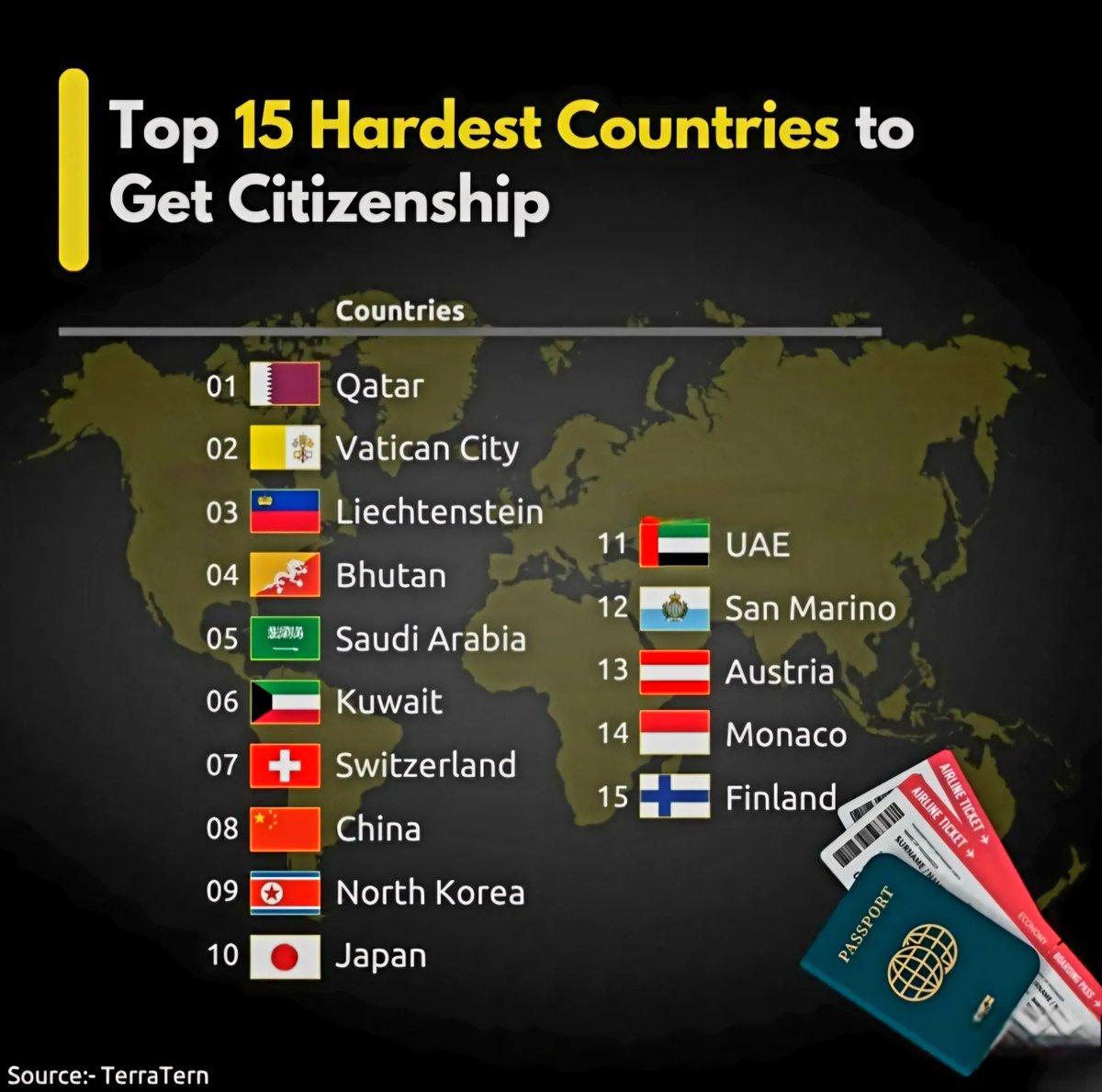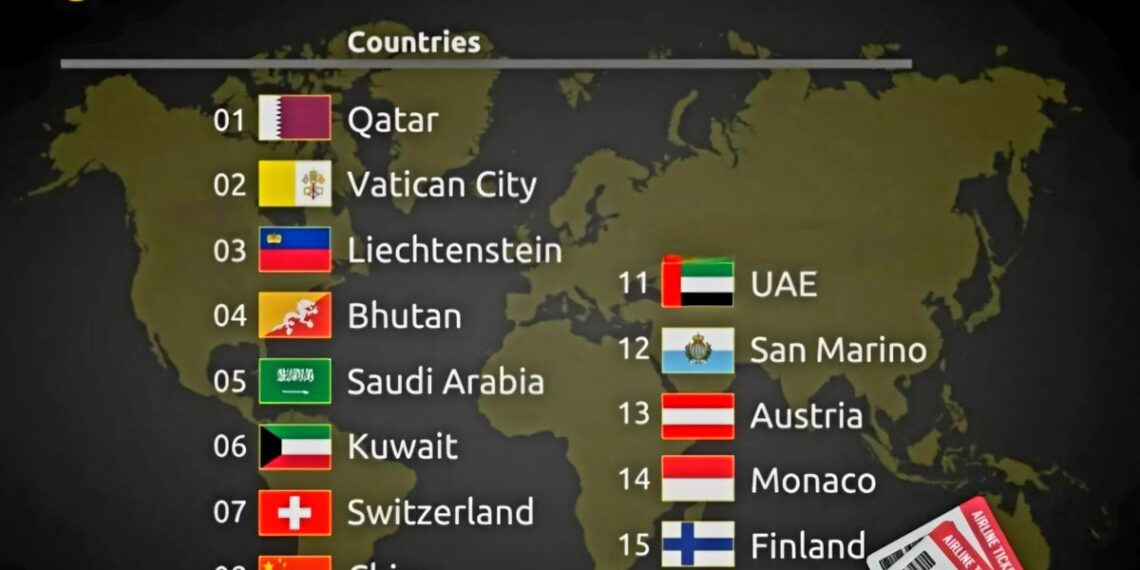Select Language:
The 15 Toughest Countries to Secure Citizenship
Securing citizenship in a foreign country can often be a challenging endeavor, especially in some of the world’s more restrictive nations. Here’s a deep dive into the 15 hardest countries where obtaining citizenship is a complicated process, emphasizing stringent residency requirements, language skills, and unique stipulations.

Qatar
In Qatar, prospective citizens face a daunting 25-year residency requirement. Additionally, applicants must renounce their original citizenship, convert to Islam, and demonstrate proficiency in the Arabic language. These barriers make it one of the most challenging countries to claim citizenship.
Vatican City
Citizenship in Vatican City is unprecedentedly exclusive. It is predominantly granted to members of the clergy, diplomats, and church workers. For outsiders, there’s no clear path to naturalization, making it nearly impossible for most individuals to become citizens.
Liechtenstein
To become a citizen of Liechtenstein, one must either reside in the country for 30 years or be married to a citizen for at least five years. The approval process is rigorous and competitive, as the country mandates strict conditions for citizenship.
Bhutan
Becoming a citizen of Bhutan requires a long-term commitment, with a minimum residency period of 20 years. Additionally, applicants must have a clean record, and the final decision rests solely at the discretion of the monarchy, adding an unpredictable layer to the process.
Saudi Arabia
Saudi Arabia has its own set of strict requirements for citizenship. Applicants must reside in the kingdom for at least 10 years, speak Arabic fluently, and maintain a clean criminal history. The process is both selective and thorough, making it challenging to navigate.
Kuwait
Kuwait mandates a 20-year residency requirement for citizenship, with the additional stipulation that applicants must be Muslim. Moreover, dual citizenship is not permitted, adding another layer of complexity to the process.
Switzerland
Switzerland requires a minimum of 10 years of residency for prospective citizens. In addition, applicants must demonstrate proficiency in one of the country’s national languages at the B2/A2 level. This level of linguistic competence, coupled with residency, makes Swiss citizenship particularly challenging to obtain.
China
China has a notoriously opaque naturalization process. There is no clear path to citizenship; instead, it is limited to special state approval, family ties, or rare exceptions. As a result, many find it nearly impossible to secure citizenship in this vast nation.
North Korea
North Korea’s citizenship process is highly restricted, with no allowances for dual citizenship. The naturalization process is secretive and complex, making it incredibly difficult for outsiders to navigate.
Japan
Japan offers a more straightforward residency requirement, with a minimum of five years needed to apply for citizenship. However, applicants must also demonstrate proficiency in the Japanese language and renounce any previous citizenship, which adds layers of difficulty.
United Arab Emirates (UAE)
To secure citizenship in the UAE, individuals must reside in the country for 30 years unless they are citizens of other Gulf Cooperation Council (GCC) countries. The citizenship process here is also known for its selectivity, further complicating the journey to becoming a citizen.
San Marino
San Marino requires an impressive 30 years of residency for citizenship, with applicants barred from holding dual citizenship. The lengthy commitment makes this tiny republic one of the hardest places to gain citizenship.
Austria
In Austria, a minimum of 10 years of residency is mandatory for citizenship. Applicants must also prove B2-level proficiency in the German language. The country maintains a strict naturalization policy, adding to the complexity of citizenship efforts.
Monaco
Monaco is known for its luxurious lifestyle, but gaining citizenship is anything but easy. A minimum residency requirement of 10 years exists, along with the stipulation that new citizens must renounce any other citizenship they may have.
Finland
Finland requires applicants to reside in the country for five years, but it is the language requirements that prove particularly daunting. Proficiency in Finnish or Swedish is mandatory, creating barriers for many would-be citizens.
In summary, while the allure of living in these diverse countries may be strong, the path to citizenship is fraught with challenges and regulations that often deter or complicate the process for many applicants. Whether due to residency laws, language requirements, or socio-political stipulations, aspiring citizens must weigh their options carefully when considering these tough territories.







